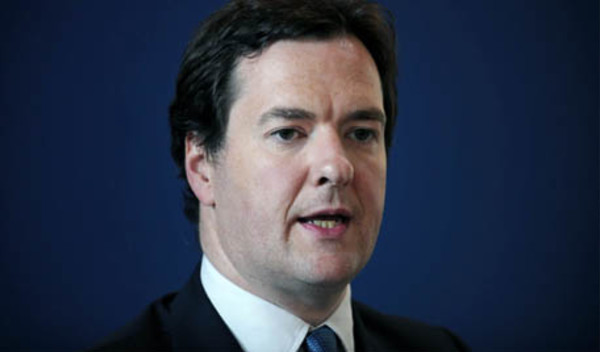

The government has begun the process of selling its shares in the Royal Bank of Scotland, selling 5.4 per cent of the bank at a price of 330p per share.
This raised £2.1bn to be used to pay down the national debt, but also meant a taxpayer loss of around £1bn due to pricing compared to the price the government bought the bank for following the global financial crisis.
When the £45.5bn bailout took place in 2008 it was at an average price of 502p, but yesterday’s 330p deal price led to a £1.72 loss on every share sold.
The government’s overall stake in the bank will be reduced from 78.3 per cent to around 72.9 per cent from this first round of sales.
The government set out its objectives for its shareholdings in the banks in the chancellor’s annual Mansion House speech in June 2013, confirming the intention to begin the sale during the same speech this year, following advice from the governor of the Bank of England.
George Osborne said in his speech: “Yes, we may get a lower price than that was paid for it – but we will get the best price possible. For the longer we wait, the higher the price the whole economy will pay.”
The chancellor received advice from UK Financial Investments yesterday that it would be appropriate to conduct the first sale of the shareholding.
UKFI’s chief executive James Leigh-Pemberton told the chancellor that the offer should be made to institutional investors, that the current share price is fair value and that investor sentiment and risk appetite remain conducive to the placing.
“We believe that this transaction should be launched via an accelerated bookbuild to institutional investors with a size of circa £2bn,” read the letter.
John Kingman, the Treasury’s second permanent secretary, confirmed that he believed the time was right to execute an initial sale.
“It is very much in taxpayers’ interests to begin the process of reducing the resources tied up in these shares and I am satisfied that a sale at this time would offer good value for money for the taxpayer and meets all other requirements in accordance with the principles of managing public money,” he wrote.
Mr Osborne said that the move will promote financial stability, lead to a more competitive banking sector and support the interests of the wider economy.
“Now is the time for RBS to rebuild itself as a commercial bank, no longer reliant on the state, but serving the working people of Britain.
“While the easiest thing to do would be to duck the difficult decisions and leave RBS in state hands; the right thing to do for the economy and for taxpayers is to start selling off our stake.”
peter.walker@ft.com



